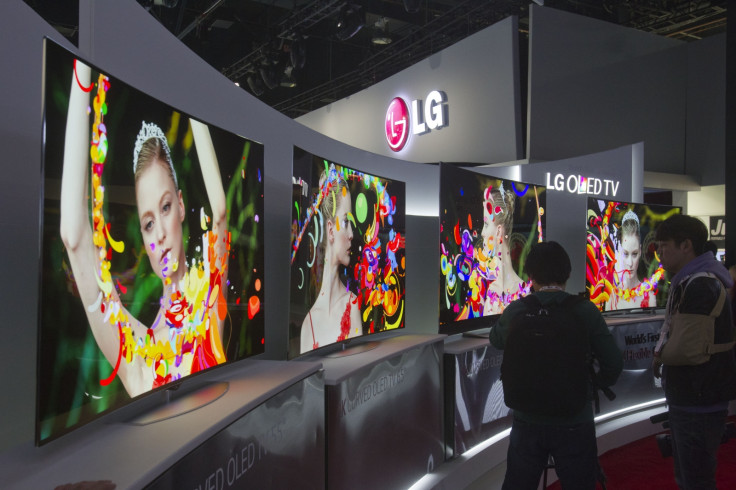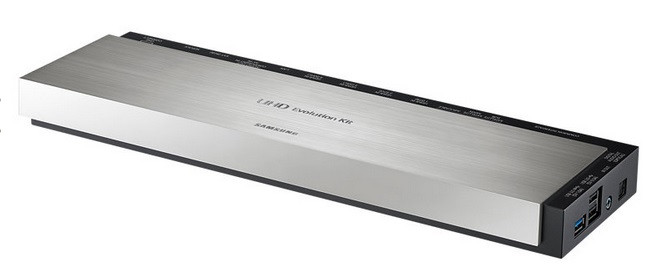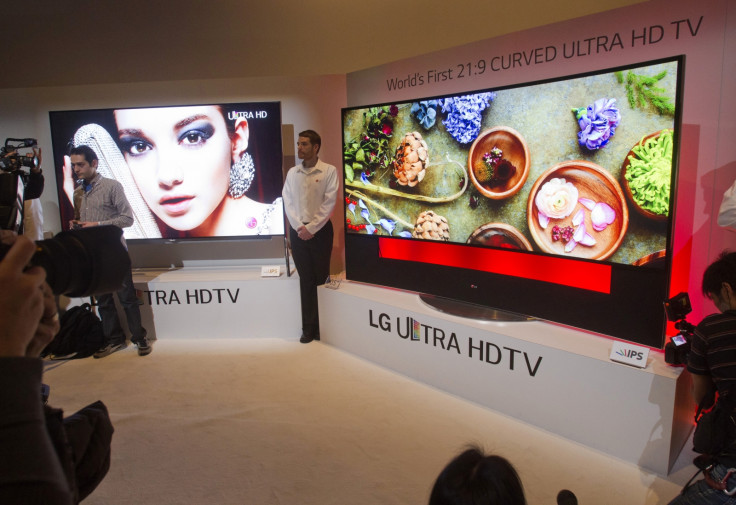Sky: 4K TV early adopters won't be able to watch sports broadcast in UHD

Early adopters of Ultra High Definition (UHD) televisions, also known as 4K TVs, could find their expensive new screens unable to handle broadcasts in a super-sharp format when they finally take off.
Heralded as the future of television, screens of 3840 x 2160 (UHD) to 4096 x 2160 (4K) resolution are the first major resolution milestone reached since HD Ready and Full HD arrived almost a decade ago.
But due to a lack of global standards set out by regulating authorities and the United Nations, consumers who bought a 4K television in 2013, 2014, or even in the first half of 2015, may find it impossible to watch UHD sports when they are broadcast in the years to come.
Speaking at a conference in London to discuss the future of television, Chris Johns, chief engineer of broadcast strategy at Sky, said: "If you bought a set in 2013 and early 2014, then sorry, it won't do sport. It'll only go up to 25 frames per second (fps). If you bought a set last year, even a set in the sales this summer, this spring, then I'm sorry - it won't do High Dynamic Range, which gives you better, brighter pictures."
The problem is that many UHD televisions cannot support content broadcast at more than 25fps, a problem tied to the refresh rate and underlying hardware of the UHD screen panel. This is the speed used by almost all Hollywood films, so while they will play without a problem, broadcasters are yet to agree on what frame rates to use for sports, which are typically much faster and suffer from poor picture quality when played at low frame rates.
Johns suggested that 100fps would be ideal for sports broadcasts. Higher frame rates require better HDMI cables, but also improved hardware on both the transmitting and receiving ends of the signal, so a software update won't improve a television's frame rate.
A partial - and expensive - solution
When IBTimes UK put this to Samsung, the South Korean company said it recognises the changing UHD landscape and offers the UHD Evolution Kit, a £400 device which plugs into 4K televisions from 2013 to give them the performance upgrade of a quad-core processor and HDMI 2.0 connectivity.
But because TV stations haven't yet decided on how to broadcast UHD content, there is no way of knowing if this kit will make older sets compatible with future broadcasts.
Samsung said it "will be working closely with all streaming and other UHD services to ensure that we continue to meet any new standards that come into the market."
IBTimes UK has also spoken to Sony and LG, and will update this article when we get a reply.

BBC's UHD head doesn't own an Ultra HD TV
Johns was joined on stage by Andy Quested, head of HD and UHD at the BBC. Neither men own a UHD television, nor did any of the audience, made up of representatives, executives and engineers from a wide range of TV broadcasters, manufacturers and technology companies.
Although a very basic UHD standard is now in place, dictating a resolution of at least 2160 x 3840, this doesn't set a minimum frame rate for manufacturers to adhere to. If broadcasters opt for a frame rate higher than 25fps, many UHD television owners will be left in the dark. And determining an all-encompassing standard isn't something which will happen overnight.
Quested warned: "The really worrying thing is that the ITU [International Telecommunications Union] comes to the end of a study period in July, which means that it goes through its internal political churning for six months, but in that time nothing happens. So from July to late January nothing will happen in the standards market. Other standards bodies are really good at getting a lot of different standards to market, letting manufacturers choose the best, but the market then decides which continue and which fail."
'It's a bit of a worry'
This gives the industry the choice between a market with standards imposed globally by the UN, where UHD broadcasts will work on any 4K TV, anywhere in the world, and a choice of half a dozen standards which will all work, but broadcasters and manufacturers will have to bet on one to back.
"It's a bit of a worry," Quested said. "We've got to come up with something by July, or it's going to be July next year [2016], assuming just one more meeting is needed."
With 3D failing to capture consumer interest, manufacturers are rushing to get the more easily-marketable UHD technology onto the high street. Vast televisions with retina-burning screens showing how much more detail 4K offers over Full HD stand proud in shop windows with ever-lower price tags.
But there is going to be an awfully long wait before UHD programmes are even available, let alone ubiquitous. The current HD standard is some 30 years old, while HD broadcasts started almost a decade ago, giving TV companies and manufacturers 20 years to let the standard mature before presenting it to the public.
UHD's single, basic standard is just two years old.
Simon Gauntlett, chief technology officer of DTG, a collaboration group for digital television companies, warned that this "compression in time can lead to confusion in standards."

There's never anything on...
Another huge drawback for UHD today is a lack of content. There isn't a single UHD television channel in the UK, nor are there are Blu-rays discs (or players) capable of playing UHD pictures with the all-important High Dynamic Range feature; these are thought to be arriving by Christmas 2015. Netflix offers a 4K service for £8.99 per month - up from the usual price of £5.99 - which includes 4K versions of House of Cards and Breaking Bad, but requires a steady 15Mbit internet connection.
Gauntlett said consumers are being confused over what buying an Ultra HD television means. "The biggest concern is they say they want 4K, they buy it and they turn on BBC1 and it looks rubbish - almost guaranteed. The fact is, the vast majority of people haven't been migrated from SD [standard definition] to HD. Sky is starting that move, but not all the channels are there. And because it's compressed at fairly low rates, when you stretch it on a big screen it really doesn't look that good."
Waiting for a big bang moment
Both Sky and BBC say they are waiting for a "big bang" moment before giving UHD broadcasting the green light. Content has been filmed in UHD for some time, but the networks are yet to invest in other hardware, such as outside broadcast trucks, and won't do so until standards are in place and consumers are guaranteed a noticeable upgrade in picture quality.
Johns said satellite connections have "plenty of bandwidth" to broadcast UHD, but admitted "the last 200 meters" to the customer's home is where it is difficult to keep quality high. Quested took a different approach, saying he doubts the BBC will ever offer UHD over a traditional broadcast service. Instead, he believes the future will see a system where viewers can press the red button during certain programmes, which will then deliver a UHD stream through their fibre optic internet connection. He also doubts all programmes will be filmed in UHD.
Over 40% of consumers say they want their next television to be UHD - but we have to wonder how many realise what little content there is to watch, let alone whether the TV they buy now will even work properly when UHD broadcasts begin.
© Copyright IBTimes 2025. All rights reserved.






















